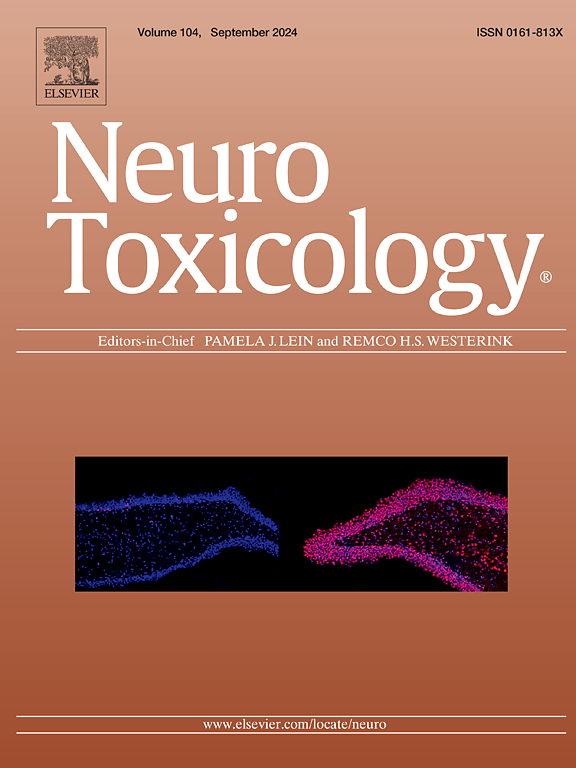Cannabidiol potentiates phenobarbital-induced cell death in the developing brain
IF 3.9
3区 医学
Q2 NEUROSCIENCES
引用次数: 0
Abstract
Epilepsy, affecting about 1 % of the global population, is more prevalent in children. The primary treatment is antiseizure medications (ASMs), with phenobarbital (PB) being the most common for pediatric cases. However, PB is effective in only two-thirds of patients and can cause side effects like cell death in developing brains. Early-life epilepsy treatment is particularly challenging, as many patients continue to experience poorly controlled seizures. Due to the limitations of current ASMs, cannabidiol (CBD) has emerged as a promising alternative, offering fewer side effects, neuroprotective properties, and efficacy in treatment-resistant cases. However, its impact on the developing brain remains unclear. In this study, we evaluated the safety profile of CBD in immature rodent brains, with particular attention to possible neurodegenerative effects as detected by Fluoro-Jade C histochemical staining (a sensitive marker of neuronal degeneration. CBD was administered at doses of 2, 20, and 200 mg/kg to postnatal day 7 wistar rats (male and female), with neuronal cell death assessed 24 h later. Results showed no overall increase in cell death compared to controls, suggesting comparable cell viability across doses. Notably, combining CBD 30 mg/kg with PB 75 mg/kg significantly increased neuronal death, with the PB+CBD group showing over twice the neurodegeneration of PB alone. These findings indicate that CBD may exacerbate PB-induced neurotoxicity, countering its expected neuroprotective benefits at certain doses. This highlights the need for caution when combining CBD with PB in pediatric epilepsy treatment.
大麻二酚增强苯巴比妥诱导的发育中的大脑细胞死亡
癫痫影响全球约1%的人口,在儿童中更为普遍。主要治疗是抗癫痫药物(asm),苯巴比妥(PB)是儿科病例中最常见的。然而,PB仅对三分之二的患者有效,并可能导致发育中的大脑细胞死亡等副作用。早期癫痫治疗尤其具有挑战性,因为许多患者仍然经历控制不佳的癫痫发作。由于目前asm的局限性,大麻二酚(CBD)已成为一种有希望的替代品,其副作用更小,具有神经保护特性,并且对治疗耐药病例有效。然而,它对发育中的大脑的影响尚不清楚。在这项研究中,我们评估了CBD在未成熟啮齿动物大脑中的安全性,特别关注通过氟玉C组织化学染色(神经元变性的敏感标志物)检测到的可能的神经退行性作用。对出生后第7天的wistar大鼠(雄性和雌性)以2、20和200 mg/kg剂量给予CBD, 24 h后评估神经元细胞死亡情况。结果显示,与对照组相比,细胞死亡总体上没有增加,这表明不同剂量的细胞活力相当。值得注意的是,CBD 30 mg/kg与PB 75 mg/kg联合使用显著增加了神经元死亡,PB+CBD组的神经退行性变是单独使用PB组的两倍多。这些发现表明,CBD可能会加剧铅诱导的神经毒性,在一定剂量下抵消其预期的神经保护作用。这强调了在小儿癫痫治疗中,CBD与PB联合使用时需要谨慎。
本文章由计算机程序翻译,如有差异,请以英文原文为准。
求助全文
约1分钟内获得全文
求助全文
来源期刊

Neurotoxicology
医学-毒理学
CiteScore
6.80
自引率
5.90%
发文量
161
审稿时长
70 days
期刊介绍:
NeuroToxicology specializes in publishing the best peer-reviewed original research papers dealing with the effects of toxic substances on the nervous system of humans and experimental animals of all ages. The Journal emphasizes papers dealing with the neurotoxic effects of environmentally significant chemical hazards, manufactured drugs and naturally occurring compounds.
 求助内容:
求助内容: 应助结果提醒方式:
应助结果提醒方式:


